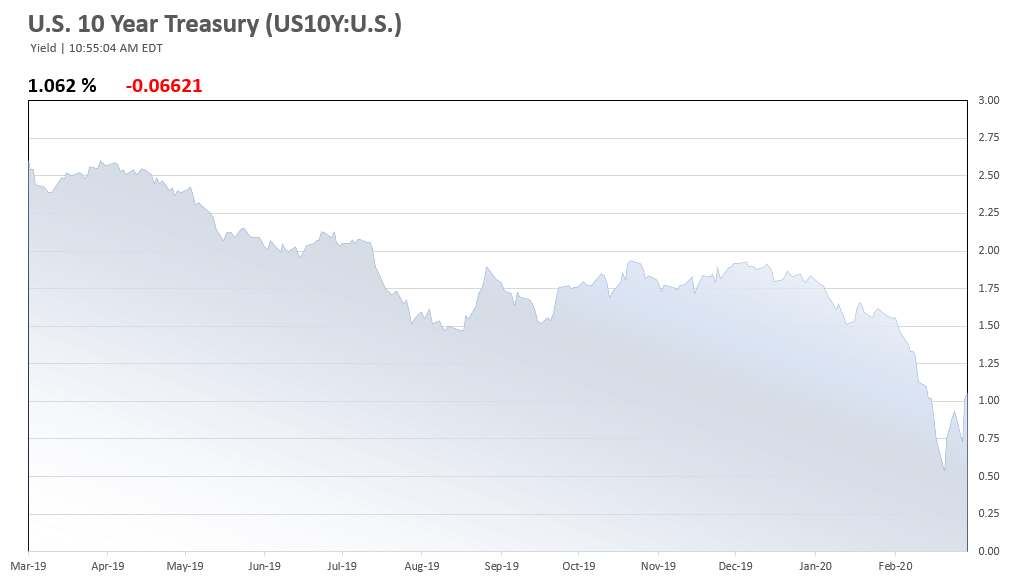The Trump administration is pushing for a $1.2 trillion stimulus package to ease the economic impact from the coronavirus outbreak. You can bet other countries around the world are watching closely and may follow suit to deal with their own economic issues. All this massive government spending will be fueled by long-term government debt.
How will the deluge of new supply of debt impact interest rates?
Like most commodities, the yield on fixed income securities tend to rise and fall based on supply and demand. Someone needs to buy up all those fixed income debt securities to fund deficit spending. Any time you have more supply than demand, it’s a buyer’s market. Here, with the glut of debt heading to the market and only so much funds to allocate, it's the fixed income investors who are the buyers who can demand higher interest rates.
The wild card here is the Fed. Earlier in the week, the Fed resumed its quantitative easing (QE) program, with a commitment to purchase $500 billion in U.S. Treasuries and $200 billion in agency MBS. Will that be enough? Does the Fed have the appetite or capacity to take on more? Stay tuned.
FHA COMMERCIAL RATE UPDATE: MARCH 18, 2020
Concerns regarding an oversupply pushing interest rates higher are weighing on investors’ minds. The yield on the U.S. 10-yr has increased dramatically over the past 2 days as it touched 1.22%, up from 0.65% on Monday. With the huge volatility in the market, spreads have widened considerably.
Today’s pricing:
- 35-year fixed FHA perm loans: 2.90%-3.15%
- 40-year fixed FHA construction/perm loans: 3.75%-4.00%
These pricing indications are current as of the date posted, subject to market interest rate volatility. Pricing of FHA insured apartment and healthcare loans may be dependent on loan size and other risk factors. Call for more information.
Interested in learning more about FHA's attractive 223(f) refinance loan program?
Click to learn more!


